Organic Pest Control for the Garden: How to Get Results
-
Pete Ortiz
- Last updated:

Take stock of their benefits and drawbacks, and you’ll quickly realize chemical pesticides don’t make much sense for a home garden. Between the potential for environmental damage and personal injury from prolonged exposure, you have to wonder, where’s the advantage?
In most cases, you’ll find even those benefits in more eco-friendly organic efforts. While chemical pesticides take a “spray and pray” approach, organic pest control often follows the “set it and forget it” strategy. Take a few more minutes to plan your garden, and you could end up with organic pest treatments running on auto-drive.
You may still need to intervene with more heavy-duty solutions when pests attack. But even then, organic is often the best option. To promote a thriving ecosystem and a healthy household, take a responsible approach to prevention in the garden with these nine organic pest control methods.
The 9 Organic Pest Control Methods
1. Crop Rotation
Crop rotation and interplanting are the easiest and most effective organic methods to control pests and diseases. Bacteria, fungi, and overwintering insects have preferred hosts. Planting new crops will eliminate food sources, allowing populations to die before the host crop returns in 3–4 rotations. Meanwhile, a diverse array of plants can “confuse” pests and make them less likely to spread.
Rotation is a foundational practice for any organic garden, whether it has pests or not. Moving crops around from season to season is one of the best ways to improve nitrogen in garden soil, boost fertility, and create a better soil structure. All else being equal, crop rotation gives you healthier plants. And what are healthy plants good for, apart from better flavors and larger harvests? Pest prevention!
Many pests, such as borers, tend to avoid healthy, stress-free plants because they have more difficulty digesting them. Flourishing plants will have better defenses against harmful insects and be less likely to attract them to the yard.

2. Add Beneficial Nematodes
Beneficial nematodes are microscopic parasitic roundworms that infect harmful garden pests with bacteria, killing them within days. As they live in the soil, nematodes are most effective against caterpillars and other ground-based insects, including:
- Root maggots
- Corn earworm
- Squash vine borer
- Japanese beetle larvae
- Carrot rust fly
Identifying the specific pest will allow you to buy a targeted nematode variety from a reputable online supplier or garden center. Apply nematodes as soon as possible to get the best results, ensuring you use them only when there is an active pest to give the nematodes a food source. You should see a drop in soil-based pests in about two weeks, but you’ll generally need at least one follow-up application.\
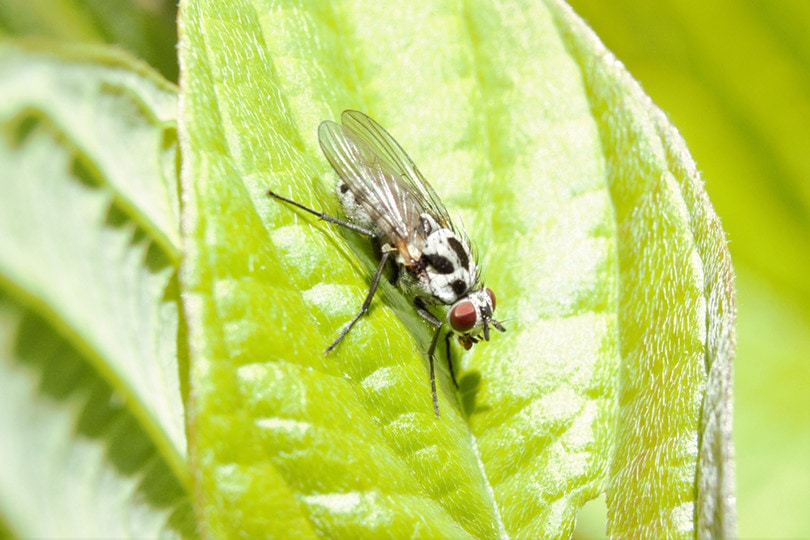
3. Attract Predatory Insects
Bringing predatory and parasitic insects into the yard will keep many common garden pests at bay, including those the nematodes can’t reach. Ladybugs are valuable helpers around the yard. One ladybug can consume up to 50 aphids daily and 5,000 over its lifetime. Other common beneficial bugs include:
- Ground beetles
- Parasitic wasps
- Damsel bugs
- Hoverflies
- Praying mantises
- Lacewings
- Spiders
These minute garden pest eliminators can target numerous everyday pests, including caterpillars, mealybugs, thrips, and whiteflies. Beneficial nematodes in the soil often leave your helper insects alone, so you may use the two cooperatively across the soil and plants.
Certain predatory insects aren’t discerning when it comes to prey, so you’ll need to weigh the pros and cons before promoting them in your garden. Praying mantises, for instance, may eliminate moths in the vegetable garden, but they’re equally likely to attack butterflies and bees around your flowers.
You can purchase predatory insects and insect egg cases online and in specialty gardening stores. Planting short flowers and herbs will also attract tiny beneficial insects looking for pollen and nectar. Yarrow, fennel, dill, and geraniums are a few of the many insectary plants to scatter about the garden.
Providing consistent food and water sources is crucial. Feeders, ground cover for spiders and beetles, and reserved garden areas are typically needed to keep the insects from migrating. You may find beneficial insects an unsustainable organic pest control method in the home garden. Consider them for enclosed areas like greenhouses, where they’ll have the best chance for survival.
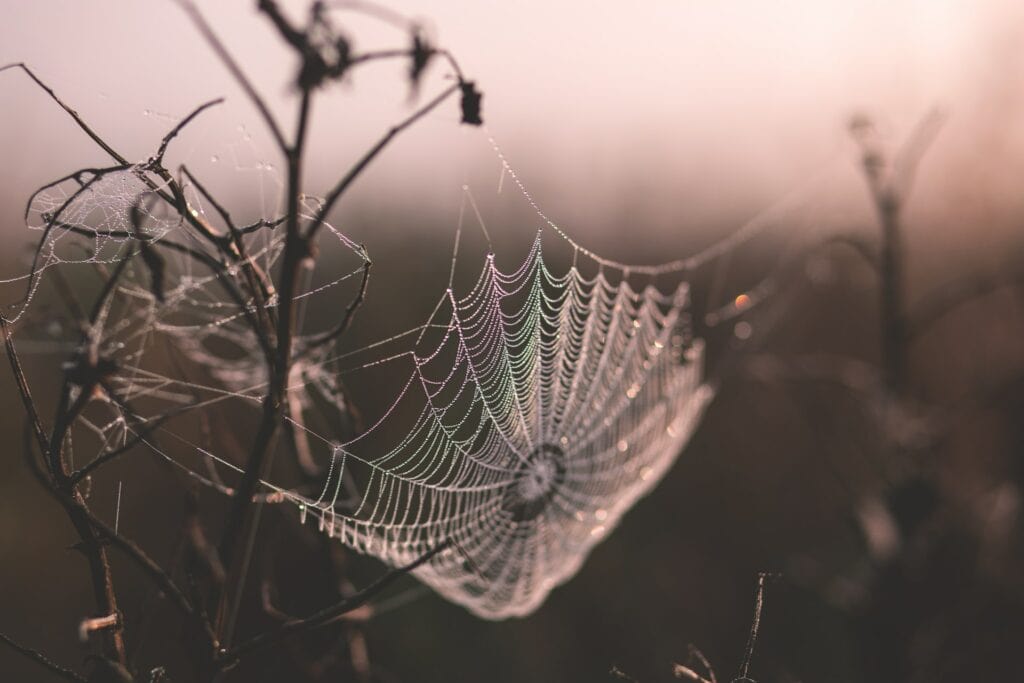
4. Plant Bug-Repellent Plants
Planting delicious, fragrant herbs and flowering plants in the garden will delight the senses while deterring pests. And in a sweeping stroke of convenience, many of these plants are the same ones you’d use to attract beneficials! The following are some of the best companion plants for bringing in the good bugs and kicking out the bad:
- Fennel
- Dill
- Lavender
- Mint
- Garlic
- Allium
Plan your garden strategically to create pest-repellent plant barriers throughout the year. Certain conditions will attract particular pests. Hot, dry weather is more likely to bring in spider mites and caterpillars, while cooler weather draws aphids, root maggots, and cabbage worms. The long-term goal is to maintain an ongoing supply of beneficial to take care of predatory insects and dissuade ever-changing pest onslaughts throughout the year.
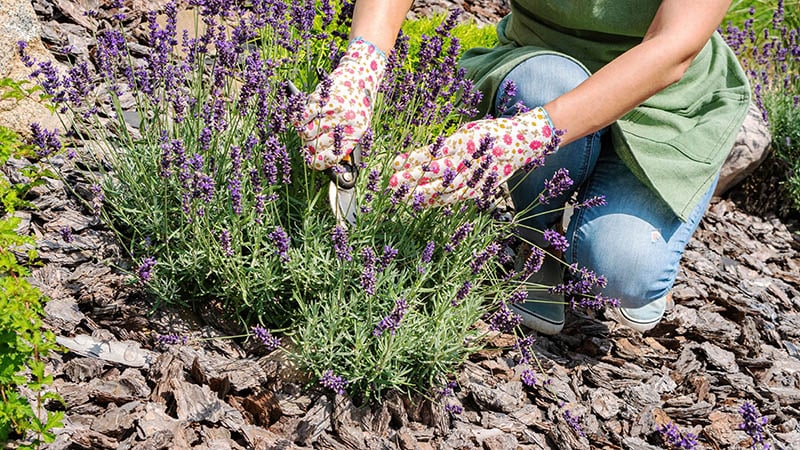
5. Use Physical Barriers
Floating row covers are a perfect organic pest control measure for seedlings and low-growing vegetables. Woven covers allow light and moisture to pass but keep harmful pests, deer, and birds from reaching your plants. Other physical pest-control barriers include:
- Root and plant collars
- Netting and fencing
- Copper barriers for slug prevention
- Hot caps
You can also set traps around the garden, many of which use pheromones to lure in targeted pests. Sticky traps are an effective organic pest control measure against aphids, spiders, gnats, thrips, and whiteflies.
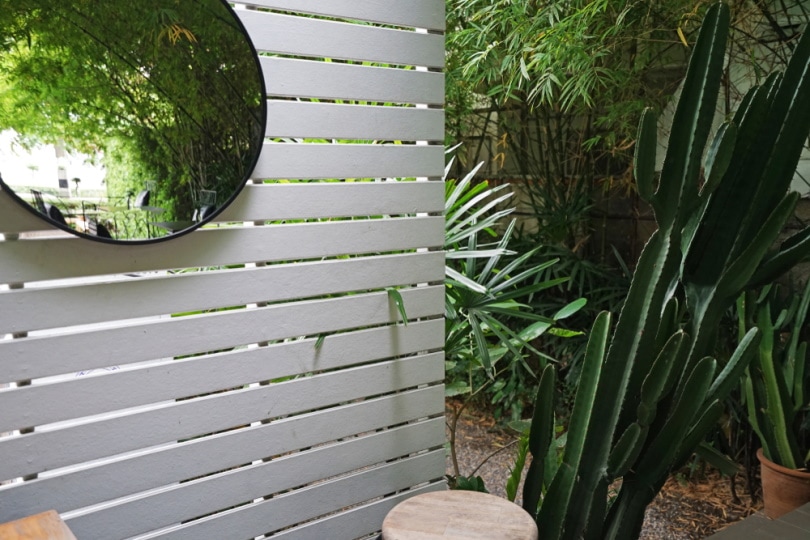
6. Spread Diatomaceous Earth
Food-grade diatomaceous earth is an effective organic control for smaller pests. A dusty layering over the soil can damage soft-bodied and hard-shelled bugs alike. The sharp powder cuts into the bodies of bugs and removes their protective coatings as they travel across it, causing them to dehydrate and die.
Diatomaceous earth’s essential advantage is also one of its primary drawbacks. As a potent bug killer, it won’t discriminate between harmful pests and beneficial insects. You don’t want to use it in pollinator-heavy areas, such as flower gardens or near attractant plants. Avoid using diatomaceous earth when it’s windy or rainy, as you’ll have to reapply it more often, costing you time and money.
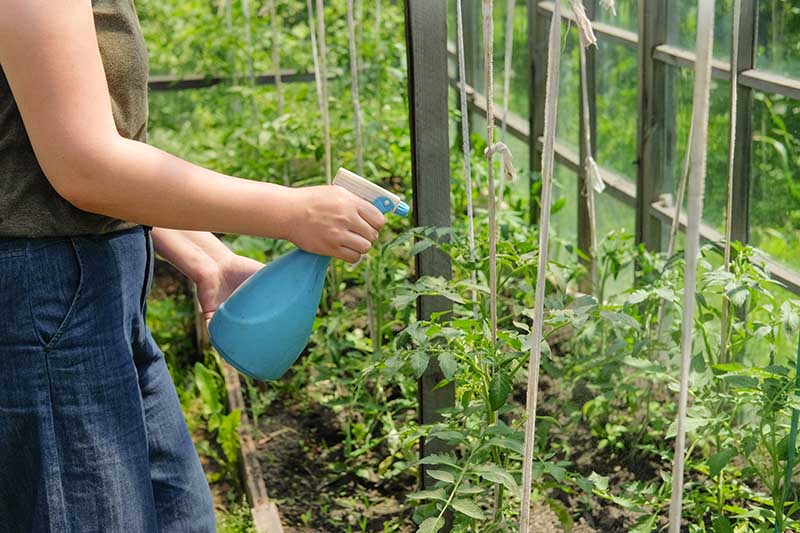
7. Spray Insecticidal Soap
Insecticidal soap may be the most straightforward organic pest control method. Search for products in home improvement, gardening, or online stores with organic labeling and certifications from organizations like the Organic Materials Review Institute. Spray a diluted soap solution directly on your plants, and it will kill aphids, whiteflies, thrips, and more on contact.
Since it relies on direct contact, insecticidal soap will need reapplications about 1–2 times weekly. Testing any new insecticidal soap treatment is crucial, as some crops may suffer leaf burn.

8. Apply
Neem oil is a natural product of the neem tree’s seeds. Available in spray form online and in stores, neem oil disrupts hormonal processes in pests, slowing their development and reproductive cycles. And because insects need to ingest neem oil for it to work, it’s generally safe to use around beneficial predators.
Search for cold-pressed neem oil for the best results, as it contains the highest concentration of the active compound azadirachtin. Higher-quality neem oil will be more effective against all life stages of insects and often gives off a pungent aroma, giving you the added benefit of further pest deterrence.

 Final Thoughts
Final Thoughts
No garden is immune to pests, but you can make dealing with them much easier by concentrating on growing the healthiest plants possible. Grow a diverse array of plants suited to your climate and soil type, giving them proper care to avoid stress. If keeping a healthy garden is the first thing you focus on, pest control will be the last thing you’ll need to worry about.
Featured Image Credit: Man Chung, Unsplash
Contents


